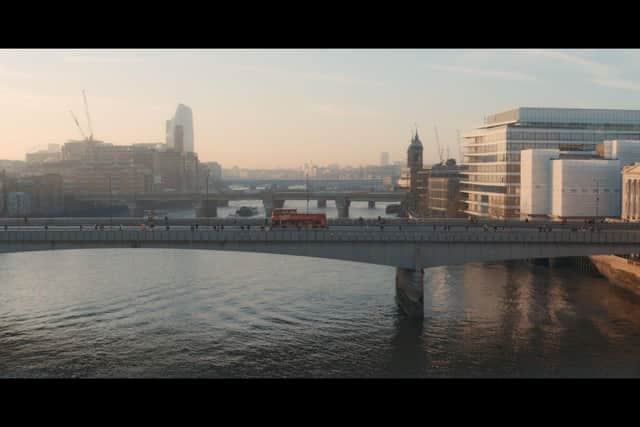London Bridge: Facing Terror provides a unique perspective of the attack
and live on Freeview channel 276
Can convicted murderers ever truly be seen as heroes?
That’s one of the main questions raised by this emotional and eye-opening documentary which chronicles the fateful events of November 29, 2019, when a terror attack took place on London Bridge.
Around 2pm, while attending a conference on prisoner rehabilitation at nearby Fishmongers’ Hall, convicted terrorist Usman Khan began an attack, armed with two knives and wearing a fake suicide vest.
Advertisement
Hide AdAdvertisement
Hide Ad

After he stabbed and killed Cambridge graduates Jack Merritt and Saskia Jones, and injured three other people, several of the ex-offenders at the conference and other members of the public tried to tackle Khan before he ran out on to London Bridge.
Steven Gallant, John Crilly and Darryn Frost each played a crucial role in stopping the attacker before he was eventually shot dead by armed officers.
The three men were hailed as heroes, but that wasn’t the end of story.
When the past criminality of Steven (jailed in 2005 for killing an ex-firefighter) and John (convicted for murder after a burglary went wrong) were bought to the fore, the narrative shifted.
Advertisement
Hide AdAdvertisement
Hide AdLondon Bridge: Facing Terror provides a unique perspective of the attack as it allows Steven and John, as well as prison officer Darryn, to share their detailed accounts for the first time.
Additionally, it delves into how the past experiences of each man shaped their actions that day and led them to be present at Fishmongers’ Hall during the attack.
Not only does the documentary provide an account of that fateful day, it also aims to leave the audience with a deeper understanding of the issues brought to the fore by this tragic incident.
It critically examines the British justice system and its treatment of individuals with criminal records, as well as the effectiveness of prison, the potential for rehabilitation, redemption and reformation, and the labels of heroes and villains in our society.
Advertisement
Hide AdAdvertisement
Hide AdSacha Mirzoeff, Channel 4’s documentaries commissioning editor, says: “The powerful testimony of John, Steve and Darryn, the three strangers who came together to help, raises fundamental issues around justice, rehabilitation, punishment and redemption.
“The result is a highly emotional account that transcends the sensationalism of the current affairs reporting of the day to ask our system uncomfortable questions about who we like to label as heroes and villains and what impact that can have.”
Gallant was on day release while serving a 17-year prison sentence when the terror attack occurred in 2019.
His sentence was reduced by 10 months by former Justice Secretary Robert Buckland because of his bravery on London Bridge that day, and he believes that people can change.
Advertisement
Hide AdAdvertisement
Hide Ad“What happened there represented so much of what I believe in,” he says.
“I think it symbolised a really important moment that captured a lot of people’s imagination, in the sense that you can change.
“You can do something bad and do something good. And I hope that it inspired other prisoners.”
“I deeply regret the fact that I have taken someone’s life. And I understand and I accept nobody has the right to take someone’s life or use violence.
“Prison can work. But I think it’s got to come from within.
“If you don’t want to change, nothing can change you.”